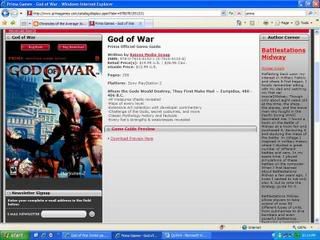"It's a nice gun, I'll give you that. But the engraving gives you no tactical advantage whatsoever, unless you were planning to auction it off as a collector's item. And you're forgetting one more very basic thing... you don't have what it takes to kill me."
- Naked Snake/Big Boss to Major Ocelot, Metal Gear Solid 3: Subsistence (2006)
Behold, the gift economy at work, even in a video game. The above quote comes from an American CIA (Central Intelligence Agency) operative giving advice to a GRU (Russian acronym, Glavnoe Razvedyvatel'noe Upravlenie, or Main Intelligence Directorate) major about the handguns he uses. And during the Cold War, no less.
The gift economy, whether it’s swapping information on cookie recipes or the advantages of a revolver over an automatic, can be defined as the free giving of anything from information, advice, tech support, or even physical gifts, without expecting immediate, direct reciprocation (Kollock, 1999).
It’s interesting that such an economy has evolved online for a few reasons. Firstly, to put things simply, there are lots of unpleasant people on the Internet. Spammers, flamers, 1337-speakers… It’s a wonder that people cooperate on anything at all, with such a large population of troublemakers out there. Secondly, some of the information and advice that you can find on the internet or in online communities can also be found offline… For a price. For instance, Prima Games, a video game guide publisher, sells books which include walkthroughs, cheats and hints for a myriad of video games. Practically any video game store carries them. And yet on GameFAQs (www.gamefaqs.com), a popular video game solutions page, you can find solutions, cheats and tips for practically any game that existed. Seriously. From the Amstrad CPC all the way up to the Playstation 3, any and almost all games are covered there. For free. You can download guides, look up cheats, and it’s all free and contributed by gamers.
Quick comparison. Prima Games’ official guide to God of War, a 2005 game, costs US$19.99, US$12.99 if you buy the online version from their store. It promises, among other things, the locations of every treasure chest and the stats of every enemy.

Now, compare this with GameFAQS.

First, notice the sheer number of FAQs available. There are 7 different walkthroughs, and 12 in-depth FAQs.

This is just one of the guides. It’s a little crude, with an ASCII logo and what looks like pillars decorating the table of contents. But how much does it cost? Nothing. Just whatever time you spend to download 228KB of data, and whatever electricity powers your PC. And there are countless other guides for countless other games.
The point is simply this. This is a classic example of the online gift economy, where information is freely given, without a request for recompense. Information that other people pay money for, and information that people make money from. Given. Just like that.
Of course, there’s a lot more to discuss concerning the gift economy. For starters, there’s motivation. What drives people like the ones on GameFAQs to write guides and put them on the internet for free when they could make a business out of it? One such motivation could be the need for recognition, or the need to enhance one’s own reputation (Kollack, 1999.). By coming up with effective strategies for solving a game, or devising killer combo attacks, an FAQ writer can effectively become a sought-after expert on whatever games he or she writes on. Of course, the notion of reciprocity also applies, as the writer might need help for another game he or she is playing.
Another example of the gift economy, though not so talked about these days, is the concept of twinking. Twinking occurs in MMORPGs, and is the process by which a high-level character outfits a new or low-level character with significantly more powerful gear than they could otherwise obtain. (Twinking, n.d.) So essentially, it’s a powerful character gifting a weak character, again without the need for instant or direct reciprocation. Many guilds do this, by kitting out new members with basic equipment, and providing them with a certain amount of cash. This enables new members to get into the game quicker, without having to surmount the usual starting difficulties that you might encounter when you try killing anything with a wooden sword.
However, twinking is unique among gift economies in that it has both its positive and negative aspects. As mentioned above, some guilds twink their new members, and this gives them a headstart where adventuring is concerned. On the other end of the spectrum, there are guilds that outfit members with excessively powerful equipment, then turn those members loose on other newbies who don’t have such benefits, effectively reducing those new players’ ability to survive, especially in PvP (player versus player) mode. (Twinking, n.d.) This ruins the game for a lot of people, especially the players who get mowed down. Excessive twinking also has the side-effect of inflating the game’s economy, as rare and powerful items are handed out to all and sundry, thus decreasing their rarity and value. Regardless, the players who give gear (called twinkers) often do so out of generosity, and don’t really expect much beyond thanks. You can read an exaggerated (and fictional) account of twinking here.
It should be noted that not everyone who participates in the gift economy is a contributor. It doesn’t matter what you’re giving out, be it information, advice, music, or MMORPG gear. There will always be people called leeches. Leeches are people, usually online, who deliberately profit from freely given information or effort without supplying anything in return. (Leech, n.d.) In the context of the gift economy, a leech is one who happily takes whatever is offered, without later reciprocating in any shape or form. This, needless to say, is detrimental to any economy, let alone one that works on what is effectively an honour system. Thankfully, leeches tend not to go very far, as gift economies thrive best when everyone contributes something in exchange for what they get.
In conclusion, the internet is a hotbed of gift economies… Where there’s a community, there’s likely to be a gift economy too. And always remember: ‘tis better to give than to receive.
___________________________________________________________
References:
Opening quote taken from Metal Gear Solid 3: Subsistence. Produced by Hideo Kojima, 2006, and published by Konami Corporation, for the Sony Playstation 2 console.
Kollock, Peter (1999). 'The Economies of Online Cooperation; Gifts and Public Goods in Cyberspace" Retrieved February 6, 2007 from http://www.sscnet.ucla.edu/soc/faculty/kollock/papers/economies.htm
Twinking, n.d. In Wikipedia, the Free Encyclopedia. Retrieved 01:20, February 9, 2007, from http://en.wikipedia.org/wiki/Twinking
Gamespy column taken from http://archive.gamespy.com/DailyVictim/index.asp?id=483
Leech (computing), n.d. In Wikipedia, the Free Encyclopedia. Retrieved 01:20, February 9, 2007, from http://en.wikipedia.org/wiki/Leech_%28computing%29
2 comments:
Ximin, I'm a fan of Metal Gear Solid as well, but I think the quote you gave demonstrates an exchange between two parties only. Gift economy refers to an entire culture / community. If Naked Snake's entire gang sat on a round table to exchange gun advice freely, then perhaps that's more like a gift economy at work, since it's highly social.
Good call with the "disruptors" of communities, namely the spammers, flamers and so on. I doubt there is ever a perfect gift economy especially in this day and age, but the overall public good exists and still serves to benefit others even in light of such characters. You mentioned leechers... there are the worse kind who take public goods and sell them for a monetary profit. It happens in Second Life.
By contrasting game guides with GameFAQs, it's a pretty neat demonstration of the different economies at work. Both serve different audiences, one being cash-rich / time-poor, the other being the opposite.
Good writeup, full grades and possibly award winning once I'm done grading the remaining 60 or so blog posts.
Oh, I nearly forgot, you taught me something new: Twinking. That's extra points right there!
Post a Comment